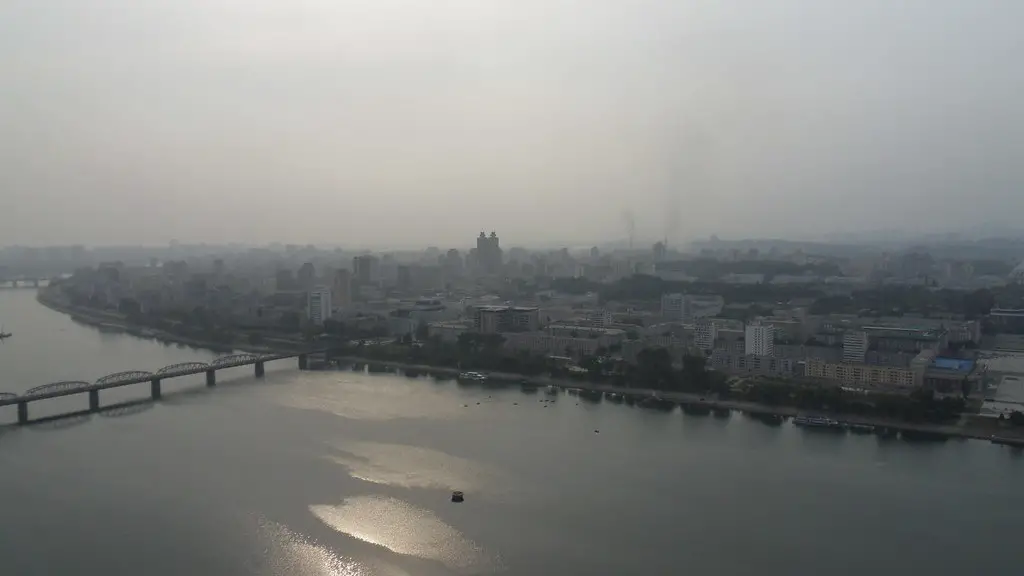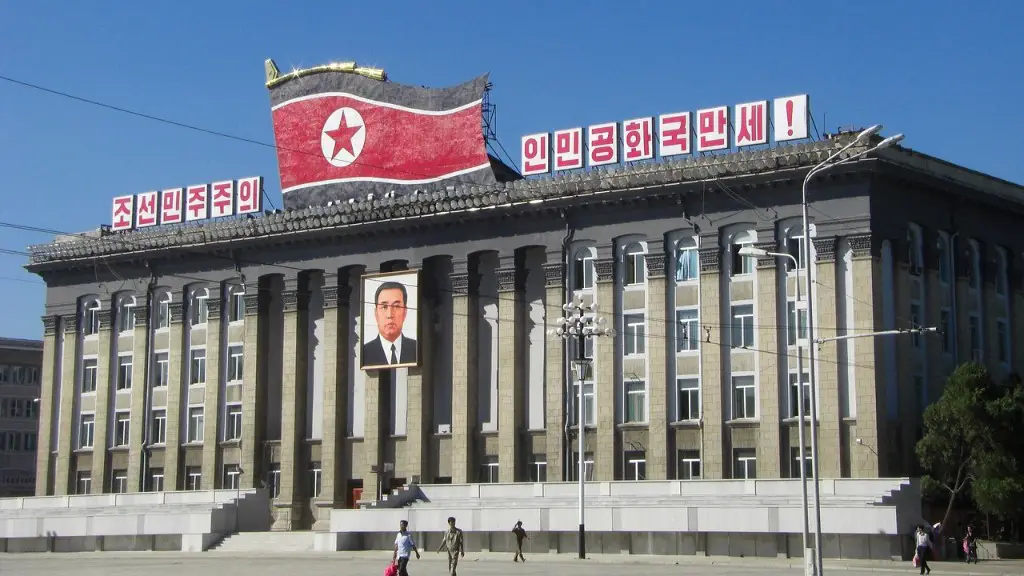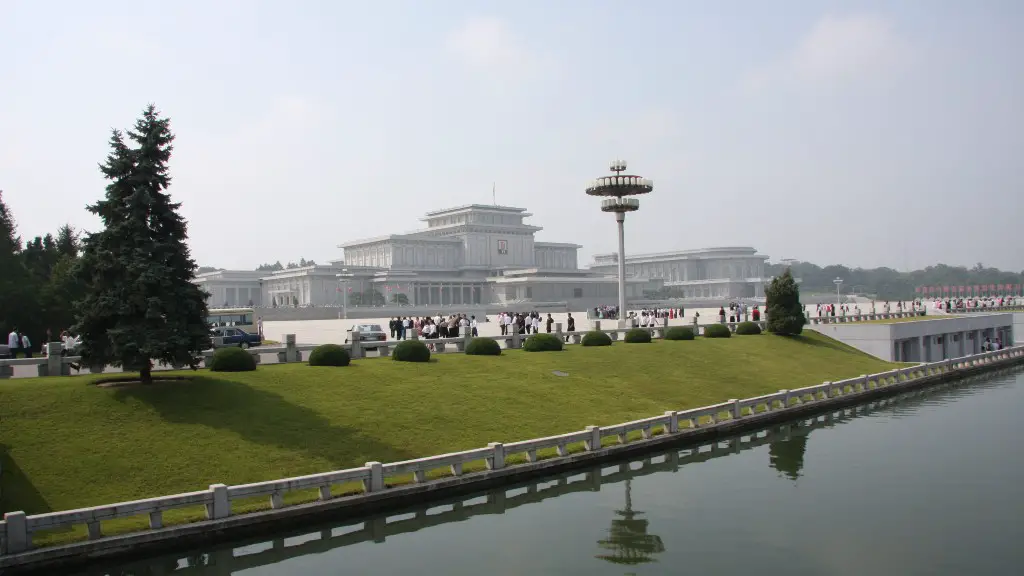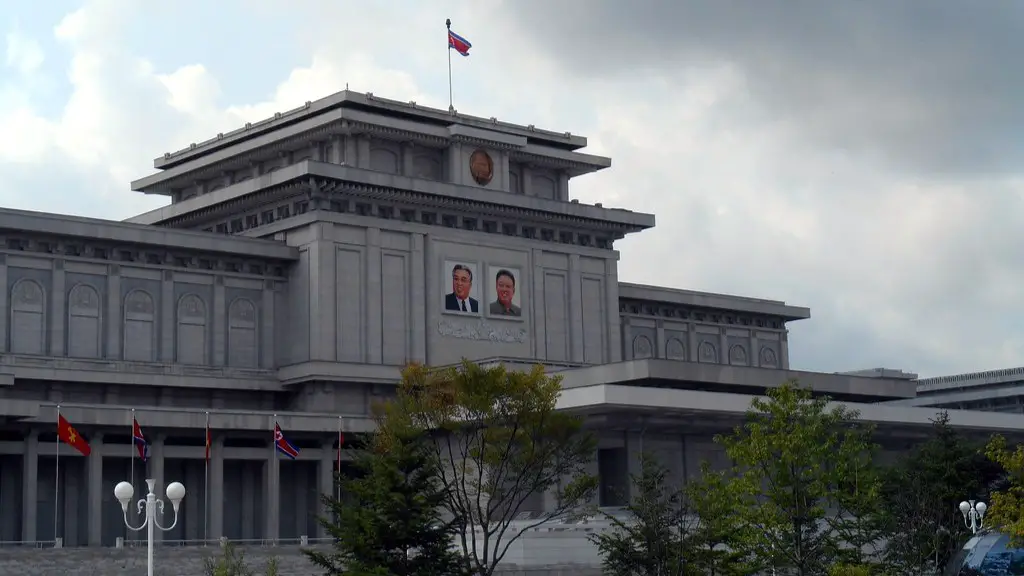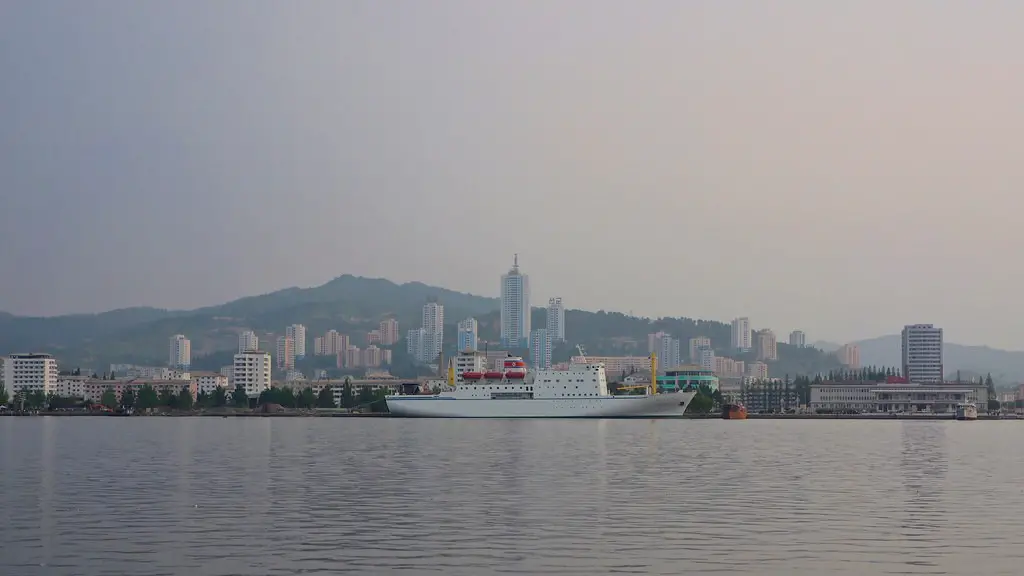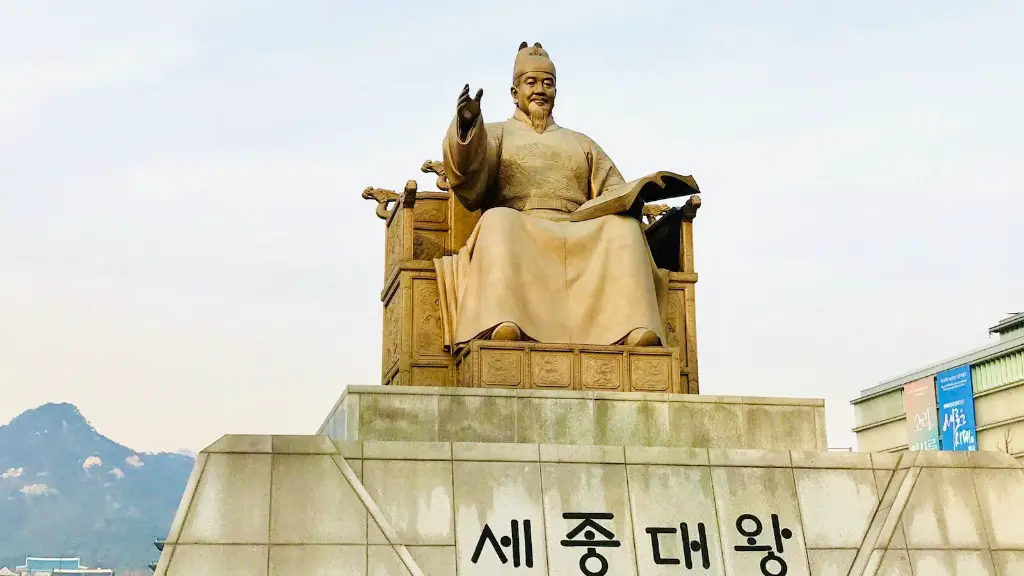Since the Korean War, the United States has maintained a policy of hostility towards North Korea. This policy is manifested in the form of economic sanctions which have been placed on North Korea by the US government. The purpose of these sanctions is to prevent North Korea from developing nuclear weapons and missiles.
The sanctions have been successful in curbing North Korea’s nuclear program to some extent. However, they have also caused immense suffering to the North Korean people. The most recent round of sanctions, which were imposed in 2016, have severely restricted North Korea’s access to essential goods and commodities. This has led to widespread hunger and malnutrition in the country.
It is estimated that over a million North Koreans have died as a result of the sanctions. The United States government has been criticized for the humanitarian impact of the sanctions. However, the US government has justified the sanctions by claiming that they are necessary to prevent a greater tragedy.
The United Nations Security Council has imposed sanctions on North Korea since 2006 in an effort to stop the country’s nuclear and ballistic missile programs. These sanctions have targeted North Korea’s trade, financial, and energy sectors in an effort to cut off the sources of funding for its weapons programs. The sanctions have also included bans on the sale of certain military and dual-use items to North Korea.
What do sanctions do?
Economic sanctions are a useful tool for achieving foreign policy goals without resorting to military force. They can be used to compel another country to change its behavior, for example, by halting its support for terrorists or complying with international law. Sanctions can also be used to punish a country for human rights violations or other transgressions.
While economic sanctions are often criticized for harming innocent civilians, they can be targeted to minimize this impact. For example, sanctions can be designed to target the regime, rather than the general population.
Sanctions are not always effective, and can sometimes backfire if a country is able to rally domestic support behind its leader in response to the perceived aggression from the outside. Nonetheless, they can be a useful tool in the diplomatic toolbox.
Sanctions are typically imposed in an effort to change the behavior of a target country or entity. In the case of the UNSC resolution on the DPRK, the goal was to persuade the DPRK to halt its nuclear weapons program. Sanctions can take many forms, including economic measures, travel bans, and arms embargoes.
What are the 4 types of sanctions
There are a variety of reasons why entities may sanction others. Some of the more common reasons include:
1. To express disapproval of the actions or policies of the entity being sanctioned
2. To attempt to change the behavior of the entity being sanctioned
3. To punish the entity being sanctioned
4. To send a message to other entities that similar behavior will not be tolerated
5. To isolate the entity being sanctioned
6. To protect one’s own interests
7. To further a particular agenda
8. To gain leverage in negotiations
9. To demonstrate resolve
10. To show support for allies
11. To conform to international norms
Economic sanctions are typically imposed in an effort to change the behavior of the entity being sanctioned. The most common objectives of economic sanctions are to discourage investment in the target country, to restrict the exports of goods and services to the target country, and to reduce the imports of goods and services from the target country.
Diplomatic sanctions are a form of economic sanctions in which a country withdraws its diplomatic representatives from the target country. This is usually done in response to some act perceived as hostile by the country imposing the sanctions.
Military
The United States has imposed sanctions against a number of countries in an effort to achieve foreign policy objectives. These sanctions typically take the form of bans on arms-related exports, controls over dual-use technology exports, restrictions on economic assistance, and financial restrictions such as requiring the United States to oppose loans by the World Bank and other international financial institutions.
Does U.S. have sanctions on North Korea?
It is good to see that the US is committed to using pressure and diplomacy to try and get North Korea to give up its nuclear arsenal. This is a complex situation and it will take time and patience to resolve.
The United States exported $432,000 worth of goods to North Korea in 2018, according to the United Nations COMTRADE database on international trade. This is a relatively small amount compared to other countries, and it is likely that the majority of these exports were humanitarian in nature.
What is prohibited in North Korea?
If you’re planning to travel to North Korea, it’s important to be aware of the country’s strict laws about what you can bring into the country. Religious, pornographic, and political items are all illegal and must be declared upon arrival. All published material and electronic devices are also subject to inspection. It’s also illegal to knowingly or unknowingly possess items that breach North Korean law, so it’s important to be familiar with the country’s regulations before you travel.
The Office of Foreign Assets Control (“OFAC”) of the US Department of the Treasury administers and enforces economic and trade sanctions based on US foreign policy and national security goals against targeted foreign countries and regimes, terrorists, international narcotics traffickers, those engaged in activities .
Who has to follow US sanctions
The Office of Foreign Assets Control (OFAC) of the US Department of the Treasury administers and enforces economic and trade sanctions based on US foreign policy and national security goals against targeted foreign countries, terrorists, international narcotics traffickers, those engaged in activities related to the proliferation of weapons of mass destruction, and other threateners of the peace and stability in the Middle East.
In order to enforce these sanctions, OFAC publishes documents known as the Specially Designated Nationals And Blocked Persons List (SDN List) and the Consolidated Sanctions List. The SDN list includes individuals and entities that are owned or controlled by, or have acted on behalf of, targeted countries. The Consolidated Sanctions List includes entities targeted by UN Security Council Resolutions.
US persons must comply with OFAC regulations, including all US citizens and permanent resident aliens regardless of where they are located, all persons and entities within the United States, all US incorporated entities and their foreign branches.
Failure to comply with OFAC regulations can result in civil penalties of up to $250,000 or twice the value of the transaction, whichever is greater, as well as criminal penalties of up to 20 years in prison.
The economic sanctions placed on Russia by the US and European Union have been effective in forcing Russian oligarchs and financial institutions to divest from their long-held assets outside Russia. Moreover, these sanctions have prompted banks in several countries to curtail ties with the Russian financial sector. This has all had a negative impact on the Russian economy, and it is clear that the sanctions are having the desired effect.
Has America ever been sanctioned?
Economic sanctions are a powerful tool that can be used to change the behavior of another country. The Boston Tea Party was an early example of economic sanctions being used to change the behavior of a country. The Smoot-Hawley Tariff Act was another example of economic sanctions being used to change the behavior of a country. The 2002 steel tariff was an example of economic sanctions being used to change the behavior of a country.
The Bureau of Industry and Security (BIS) is responsible for implementing US Government sanctions against Cuba, Iran, North Korea, and Syria pursuant to the Export Administration Regulations (EAR). BIS implements sanctions either unilaterally or in response to United Nations Security Council Resolutions.
Is China a sanctioned country
The United States government has applied sanctions against certain institutions and key members of the Chinese government and its ruling Chinese Communist Party (CCP), certain companies linked to the People’s Liberation Army (PLA), and other affiliates that the US government has accused of aiding in human rights abuses.
China and North Korea have a very close and special relationship. They have a mutual aid and co-operation treaty, which is currently the only defense treaty either country has with any nation. China is often considered to be North Korea’s closest ally.
How does North Korea make money?
Juche is the political ideology of North Korea that focuses on self-reliance. As a result, the country has pursued autarky, or economic self-sufficiency, in an environment of international sanctions. While North Korea’s economy is still largely state-owned and collectivized, there has been an increase in foreign investment and corporate autonomy in recent years. This has led to some economic growth and modernization, although the country remains one of the poorest in the world.
Credit cards and checks are not accepted in the Democratic People’s Republic of Korea (DPRK). Cash is the only form of payment accepted in the country.
Conclusion
There are many sanctions that have been placed on North Korea by the United Nations. These sanctions are in place in order to try and stop the North Korean government from developing nuclear weapons and missiles. The sanctions include bans on trade, travel, and investments.
There are currently several sanctions placed on North Korea by the United Nations in an effort to get the country to stop its nuclear weapons program. These sanctions have been effective in hindering the North Korean economy, but have not been able to completely stop the country’s nuclear ambitions.
